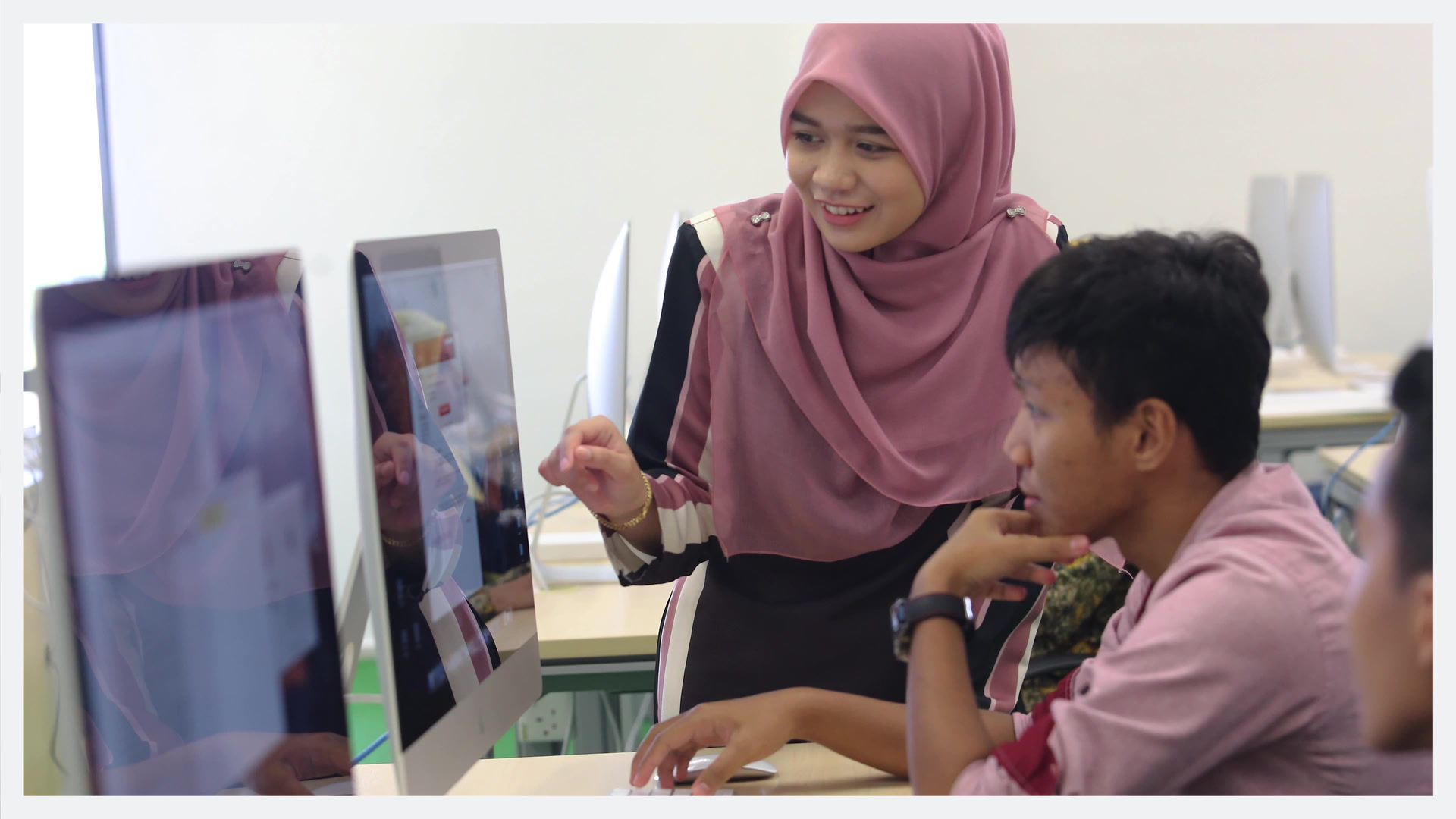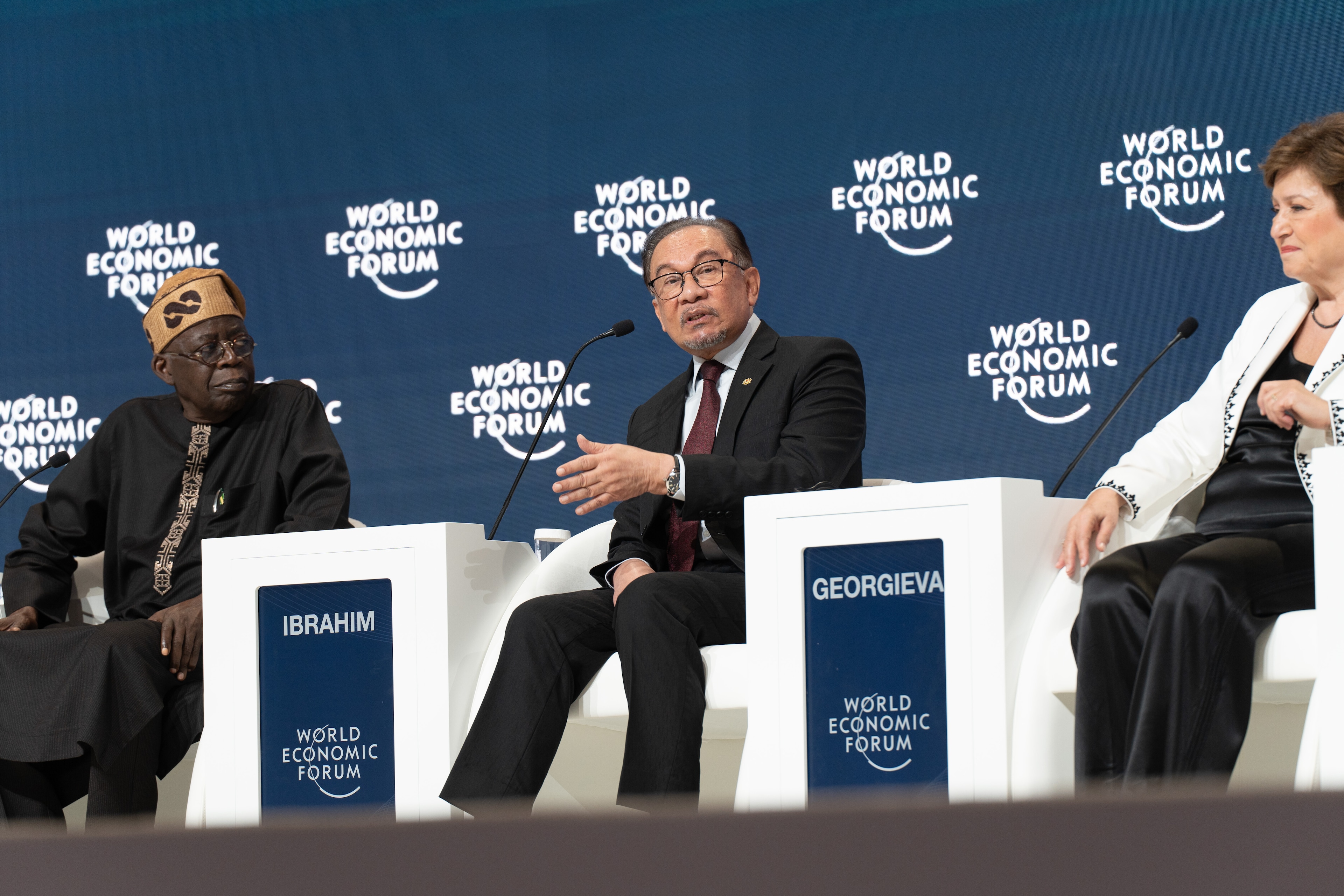Why quality education is the foundation of entrepreneurship and economic growth

Today’s education system is not designed for tomorrow’s world. Image: Unsplash

Get involved with our crowdsourced digital platform to deliver impact at scale
Stay up to date:
Education
Listen to the article
- Education is the cornerstone of opportunity — both for individuals, as they develop valuable knowledge and skills, and for society, as future generations push new boundaries of innovation and productivity.
- But today’s education system is not designed for tomorrow’s world.
- Programs like edX, a global online learning platform that offers flexible and affordable education opportunities for the future of work, can help close this gap.
This is a vital decade of action. As the world seeks to sustain economic growth while addressing social inequity and climate change, the changes we make in the next 10 years will be key to setting us on the right path to a more equitable and sustainable future.
With small- and medium-sized businesses accounting for around 90% of all companies and responsible for nearly 70% of the world's jobs and GDP, entrepreneurship will drive this transformation. These businesses will play a critical role in propelling the global economy forward.
Yet, innovators and disruptors are not born overnight; entrepreneurial minds must be cultivated. To build a game-changing business, every entrepreneur first needs the indispensable foundation of quality education. Years spent in school broaden their perspectives, help build their knowledge and confidence, and nurture their passion for lifelong learning.
Education for all: recognizing the diversity of learners
According to UNICEF, 600 million children and adolescents worldwide cannot attain minimum proficiency levels in reading and mathematics, even though two-thirds of them are in school. For the 129 million young people out of school and the 43.3 million displaced children around the world, these foundational skills are even further out of reach.
Access to education is a fundamental right, not a privilege. It is also the cornerstone of opportunity — both for individuals, as they develop valuable knowledge and skills, and for society, as future generations of skilled workers push new boundaries of innovation and productivity. As our world and economy advance, we should ensure the infrastructure is in place to support young people in pursuing their education, no matter who they are or where they live.
We also need to prepare students for the important and unknown questions that lie ahead by fostering their creativity, as well as their critical thinking and problem-solving skills. Likewise, passionate educators must be given training, investment and support to deliver modern teaching approaches that are backed by science, cultivate essential skills, and help turn young people into the leaders of the future.
The work of Dr Linda Darling-Hammond - 2022 Yidan Prize for Education Development Laureate - at the Learning Policy Institute is a compelling example. She has been rethinking how we design our schools to improve authentic learning in a way that can be applied to the real-world challenges we face today.
School systems must reinvent their curricula to provide a holistic education that fosters students’ social, emotional, cognitive and academic development. This includes shifting away from traditional systems that focus on standardized testing; we know that teaching to the average does not work. By meeting students where they are, they will become better thinkers and problem solvers.
Widening access to quality STEM education is equally important as it expands our pool of global innovators, especially in developing countries and among girls and young women. By doing so, we have a greater chance of finding new solutions for major issues, such as how to transition our global population to clean energy, limit the depletion of the world's natural resources, and protect the planet’s delicate ecosystems.
Transforming education for a digital world
We must also accept that today’s education system is not designed for tomorrow's world — and be willing to change it. Current and future generations will grow up in a digital society with an estimated 70% of new value created in the economy over the next decade based on digitally-enabled business models. As new technological innovations happen, 44% of workers’ skills will be disrupted in the next five years, underlining the need for new learning approaches. Yet, education remains largely the same as in our grandparents’ generation.
Programs like edX can help close this gap. Founded by Anant Agarwal, 2018 Yidan Prize for Education Development Laureate, it is a global online learning platform that offers flexible and affordable education opportunities for the future of work. By integrating AI plugins like ChatGPT into their system, edX is also providing learners with real-time and personalized academic support, offering a more responsive and adaptive learning experience tailored to the needs of each student.
Building a more equitable and resilient global economy together
Of course, the global economy’s success will continue to be influenced by a wide variety of factors. However, we must not overlook the important role of entrepreneurship as the engine of growth along with the key part education plays in fostering and inspiring it. Whether it is by leveraging advanced technology or unlocking the possibilities of science, the seeds of tomorrow’s innovation are planted and nurtured in today’s classrooms and campuses.
By shining a spotlight on best practices and by collaborating with like-minded partners across sectors, we can equip young people with the knowledge and skills to reimagine the future. And in doing so, we will build a global economy that is more resilient and more prosperous for everyone.
Don't miss any update on this topic
Create a free account and access your personalized content collection with our latest publications and analyses.
License and Republishing
World Economic Forum articles may be republished in accordance with the Creative Commons Attribution-NonCommercial-NoDerivatives 4.0 International Public License, and in accordance with our Terms of Use.
The views expressed in this article are those of the author alone and not the World Economic Forum.
The Agenda Weekly
A weekly update of the most important issues driving the global agenda
You can unsubscribe at any time using the link in our emails. For more details, review our privacy policy.
More on Education and SkillsSee all
Ana Paula Assis
May 10, 2024
Andrea Willige
May 10, 2024
Phil Baty
May 8, 2024
Gayle Markovitz and Kate Whiting
May 2, 2024






